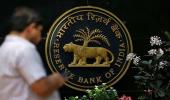Under the Vivad se Vishwas scheme, the MNCs will have to bring in disputed amount to India, else, the entire money will be considered as loan from subsidiaries on which interest will have to be paid.

The subsidiaries of multi-national companies (MNCs) can settle their transfer pricing disputes under the proposed Vivad se Vishwas scheme, but will they have to bring in entire disputed money to India.
Or else, the money not brought into India would be taken as loan from subsidiaries to headquarters on which interest has to be paid.
According to the amendments to Direct Tax Vivad se Vishwas Bill, the settling of dispute regarding transfer pricing adjustment would not have effect on the secondary adjustment.
Secondary adjustment is repatriation of an excess amount that MNCs keep with themselves after tax officers made adjustments.
If an Indian subsidiary of an MNC provides some technical service to global headquarters, it shows in its books that Rs 100 crore is given by headquarters to it and pays tax on it.
However, transfer pricing officers arrive at a conclusion that the service rendered is to the tune of Rs 110 crore and the subsidiary has to pay tax on Rs 110 crore.
Now, this difference of opinion may be pending in some court or tribunal.
This can be settled by paying tax on Rs 110 crore, but this entire amount will have to be brought to India.
Otherwise, Rs 110 crore will be taken as loan to the MNC by the subsidiary and interest will have to be paid on it at the rate of 6 per cent a year.
Alternatively, an all-time interest of 18 per cent, besides surcharge of 12 per cent or in other words a total of 20.16 per cent of Rs 110 crore can be paid and the case be settled.
Amit Maheshwari, partner at Ashok Maheshwary & Associates, said: “Thus, the declarant shall be required to repatriate the funds to India even if he goes for the settlement under the scheme.”
The intention seems to give relief only for litigation and not from repatriating the funds, he said.
The scheme offers waiver of interest, penalty and prosecution for settlement of these disputes pending before the commissioner (appeals), Income Tax Appellate Tribunal (ITATs), high courts or the Supreme Court as of January 31, 2020.
While a complete waiver of interest and penalty will be given in case of payment made by March 31, an additional 10 per cent of the disputed amount will have to be paid after that.
In case of tax arrears pertaining to only disputed interest or penalty, 25 per cent of disputed penalty or interest will need to be paid while settling appeals up to March 31, 2020 and 30 per cent if payment is made after that.
The Cabinet amended the scheme than was contained in the original Bill, tabled in Parliament.
The revised Bill will come up once the Budget session resumes next month after the recess.











